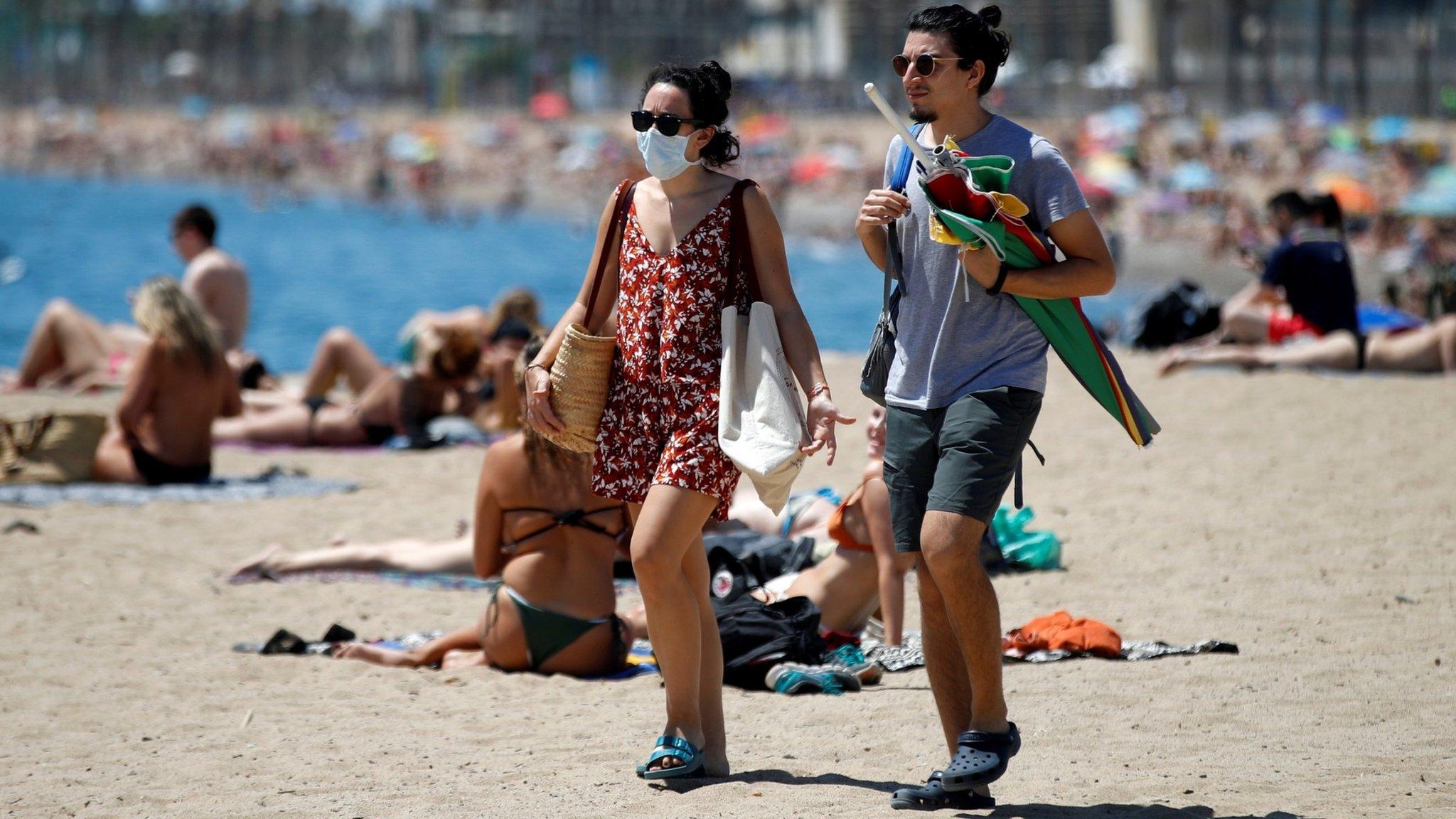Coronavirus: 'Lessons' from Spain quarantine decision
- Published
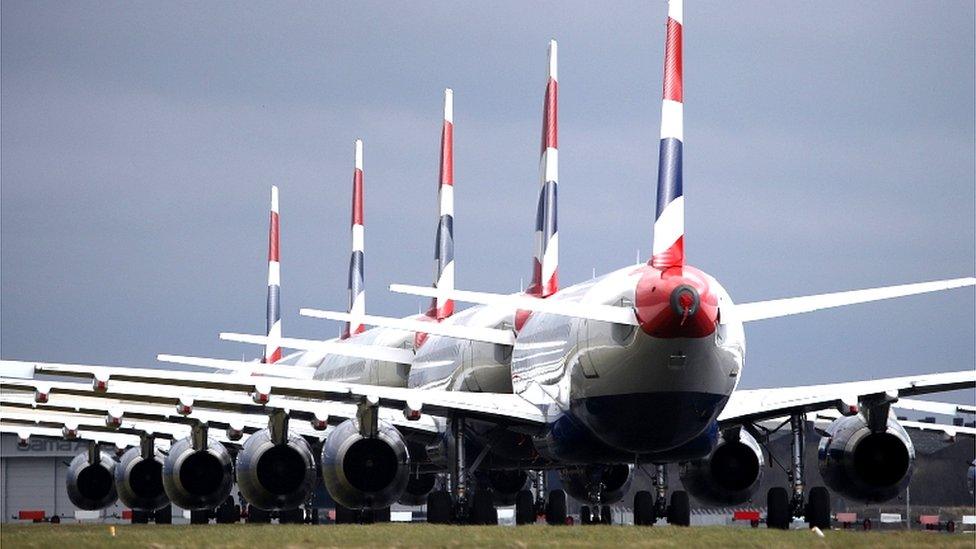
There are "lessons to learn" after the decision to remove Spain from the list of countries exempt from quarantine, Humza Yousaf has said.
The Scottish government had added Spain to the list last week, but reversed that decision on Saturday.
Travellers returning to Scotland will now have to self-isolate for 14 days.
The justice secretary said the change was made after "deeply alarming" data emerged showing cases almost doubling in Spain.
The UK government is now advising against all non-essential travel to the Balearic and Canary Islands after Spain recorded a rise in coronavirus cases.
Foreign Office guidance was changed on Monday to include both mainland Spain and islands such as Ibiza and Tenerife.
Speaking on the BBC's Good Morning Scotland radio programme, Mr Yousaf said the decision was taken on a "four-nation" basis, and acknowledged how "frustrating and disappointing" the situation was for many tourists.
He said: "The reason is very much based on the public health data we received on Saturday from the UK Government that showed a deeply alarming trend in Spain.
"In the space of a week, from the 17th of July to the 24th of July we saw cases in Spain almost double from 5,700 to 11,000."
Further restrictions
He added that the spike in cases were "not localised", as the data analysed by Public Health England had shown a rise in cases in 15 of the Spain's 19 regions.
Mr Yousaf said it is "inevitable" that countries which are currently on the exempt list for quarantine will be removed as spikes in coronavirus cases emerge, but some could also be added if the virus is being suppressed.
Scotland lifted its 14-day rule just last week, but when asked if that was a mistake, Mr Yousaf said that "decision was based on the data".
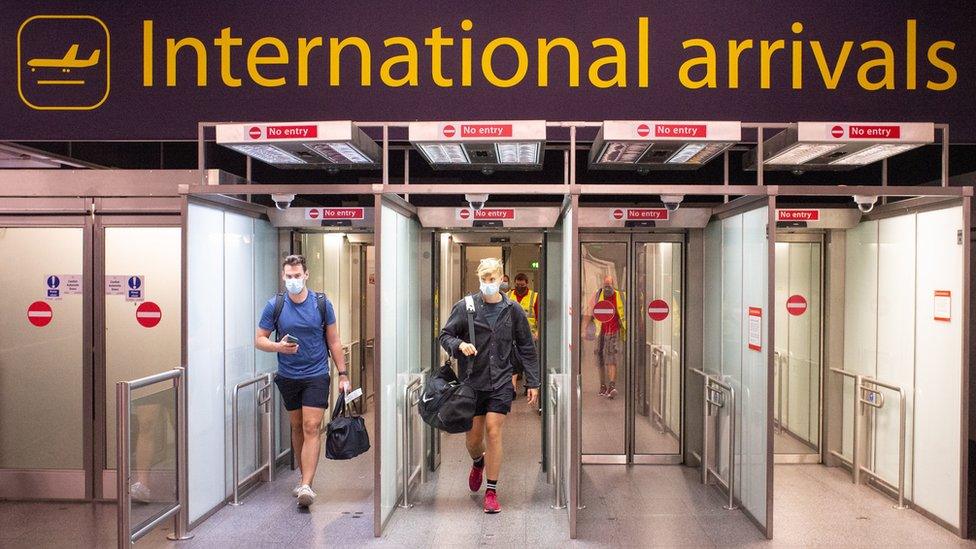
The quarantine measures for Spain were reintroduced on Saturday
"The prevalence, which is the percentage of the population per 100,000 that is infectious - that had dramatically reduced, in fact it was lower than what Scotland's was," he added.
"Clearly on reflection, perhaps there are some lessons for us to learn, I'm never against us doing that.
"I think that's important for us to do, particularly because without a global vaccine being available there are going to be times when countries are going to be taken off the exempt list, put back on the list, depending on the data that we receive."
'Element of risk'
Scottish Liberal Democrat leader Willie Rennie has called for the Scottish government to compensate travellers who could lose a portion of income due to self-isolation when they return from Spain.
Mr Rennie described the decision to reimpose quarantine on those returning from Spain as "shambolic and avoidable", and urged the Scottish government to create a helpline for those affected.
He said: "Now we need some practical solutions to support those travellers who jumped at the opportunity to go to Spain only to find themselves facing a fortnight off work in isolation. For many this could mean a significant loss of income.
"The people who need help are those who left for holiday to Spain last week because they were told by the Scottish government there would be no requirement to quarantine on their return.
Sick pay
He added: "The reduction in earnings imposed by going onto statutory sick pay can be huge at a time when household incomes are strained. The Scottish government need to take responsibility for their error and ensure that people are supported."
Speaking before Mr Rennie's comments, Humza Yousaf said he sympathised with holidaymakers, but hoped they would accept the reason for the change.
He said travel during the pandemic would always carry "some element of risk" as the situation could change rapidly, adding he "has not seen any proposals" for compensating travellers who may lose out financially as a result of self-isolation.
More than 900 new cases of the virus were reported in Spain on Friday, and Spanish officials have warned a second wave could be imminent as major cities have seen cases surge.
Timing questioned
The Scottish Passenger Agents' Association (SPAA) said it was right public health was the number one priority but questioned why the decision to re-impose the self isolation rule was taken late on Saturday.
SPAA president Joanne Dooey told BBC Scotland the weekend was the busiest time for flights to Spain and some travel agents had worked through the night to try and get information to their customers.
The Foreign Office is advising against all but essential travel to mainland Spain. Quarantine measures apply to those returning from mainland Spain, the Canary Islands and the Balearic Islands, such as Majorca and Ibiza.
The UK's biggest tour operator, Tui, has cancelled all mainland Spanish holidays until 9 August.
Transport secretary
Humza Yousaf said the economy secretary, Fiona Hyslop, was in touch with travel companies to discuss support.
Among those affected by the new rules is UK Transport Secretary Grant Shapps, who began his holiday in Spain on Saturday. He is expected to continue his trip as planned and isolate in line with guidance on his return.
The Scottish government had previously held off relaxing the 14-day quarantine rule before adding Spain to its list of exempt countries last week.
A spokeswoman said First Minister Nicola Sturgeon had advised that people should still take a "cautious approach" to foreign travel.
The spokeswoman said: "We have been clear that we may require to remove a country from the list of places exempt from quarantine requirements should the virus show a resurgence."
Allow X content?
This article contains content provided by X. We ask for your permission before anything is loaded, as they may be using cookies and other technologies. You may want to read X’s cookie policy, external and privacy policy, external before accepting. To view this content choose ‘accept and continue’.

Foreign Secretary Dominic Raab has said no worker following quarantine guidance should be penalised by employers, including by being put onto sick pay.
He said that if someone was following the law in relation to quarantine and self-isolating, "they can't have penalties taken against them".

LOCKDOWN EASING: What changes and when in Scotland?
LOOK-UP TOOL: How many cases in your area?
THE R NUMBER: What it means and why it matters

- Published26 July 2020
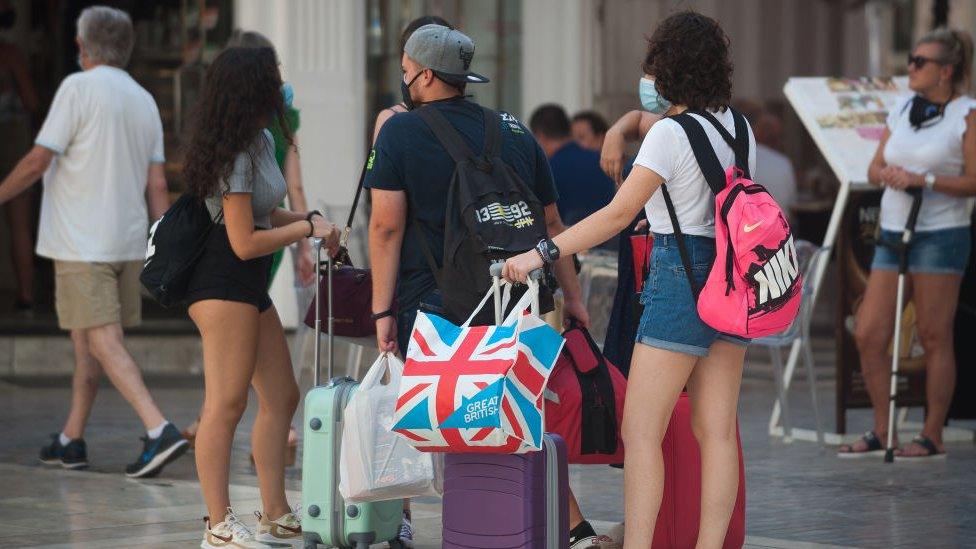
- Published11 February 2022

- Published24 December 2020
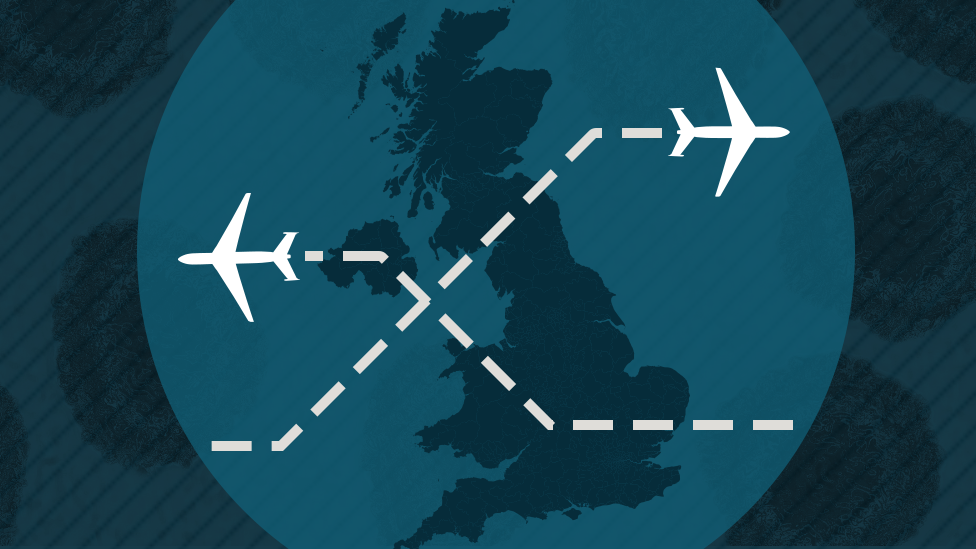
- Published26 July 2020
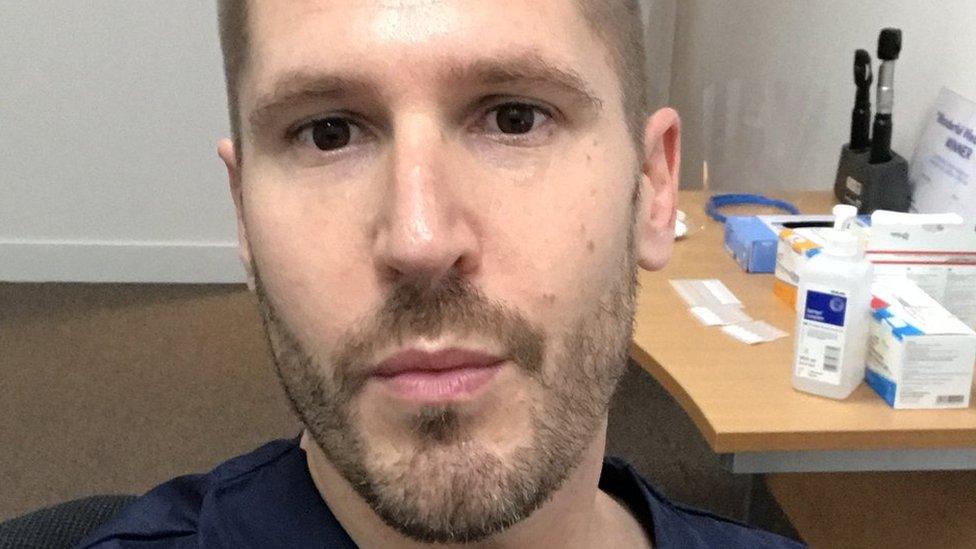
- Published26 July 2020
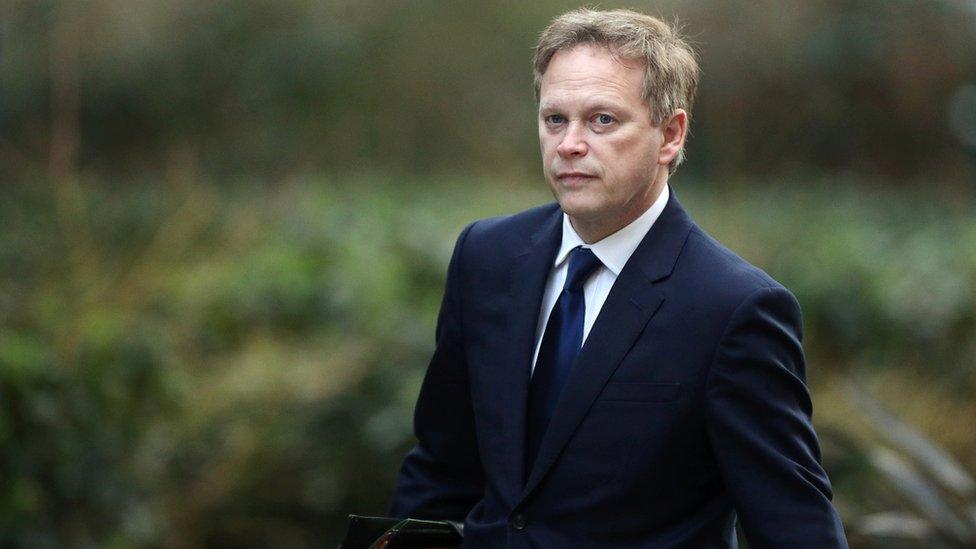
- Published25 July 2020
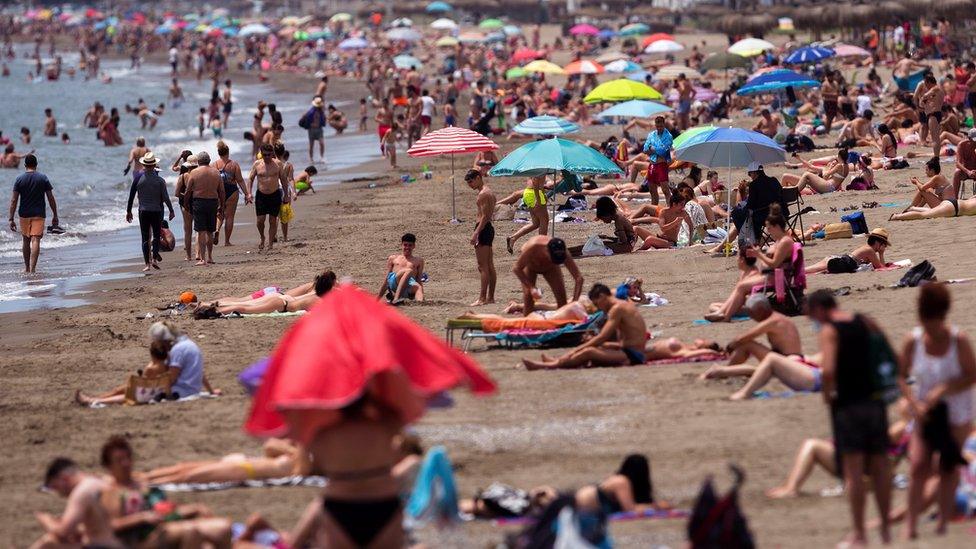
- Published20 July 2020
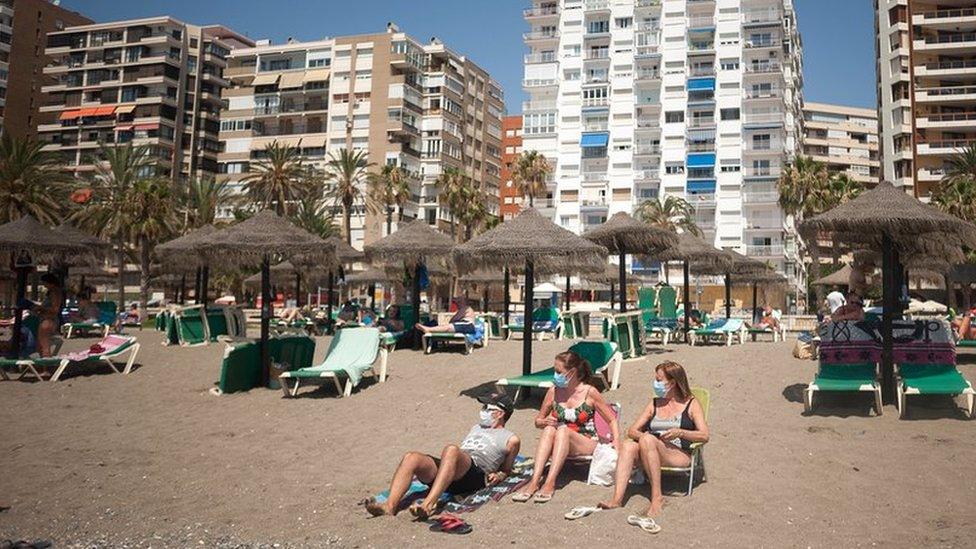
- Published8 July 2020
